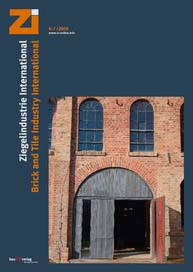An annual shortage of 400 000 housing units in Germany
Housing shortage is no longer just a problem in German cities and conurbations. In future, regions in Eastern Germany and even depopulating areas will also be affected. While Bavaria needs around 1.4 mill. new housing units by 2025, the demand in Thuringia still reaches almost 62 000 units. But much less building is going on: in Bavaria the building of around 35 000 new housing units was approved in 2008, but in Thuringia this figure did not even reach 2 200. If building activity persists at this low level, there will be a shortage of around 23 000 housing units in Thuringia by 2025 while Bavaria will be short by around 770 000 housing units.
The forecasts of this pending housing shortage are based on data of the recent study entitled “Housing shortage in Germany?” conducted by the Eduard Pestel Institute, which shows the future housing requirement region for region, down to county and district level. The study shows that it is not enough to base calculations of the future housing requirement on demographic trends. New approaches indicate that higher quality housing standards will be needed in future, especially in respect of suitability for senior citizens and energy efficiency, which many housing units cannot guarantee today.
For the whole of Germany, around 200 000 housing units per year are required based solely on the demographic development. On top of this comes an additional qualitative requirement of around 150 000 to 200 000 housing units annually. Calculation of this additional qualitative requirement is based on information from housing company boards, architects and construction engineers. They assume that for around 20% of the housing units built in the 1950s, 1960s and 1970s, refurbishment and modernization is no longer sensible and that demolition and rebuilding would be the more cost-effective option.
At the Housing Construction Forum, the annual sector meeting in Berlin, experts from politics, real estate and the construction industry discussed the consequences of the housing shortage and the need for improved efficiency in the housing sector. The detailed study on the housing shortage in Germany with regional data and other information on the
forum, statements of the spokespersons and the position paper drawn up by the real estate and housing companies can be found in German at: www.impulse-fuer-den-wohnungsbau.de



